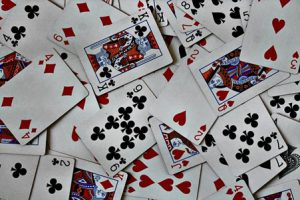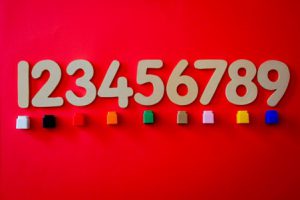Some people are naturally good with math and can effortlessly solve even the most complex mathematical equations. Others are either not interested in the subject or don’t seem to understand its intricacies. If your child is in the latter category, rest assured that it’s completely normal too.
Since math is an important subject, you can’t ignore it or discount its significance. If your child is struggling with it, you must make an active effort to ensure that they develop an interest in it. Fortunately, these days there are many ways for you to achieve this and increase your child’s interest and exposure to the subject.
Math can be made more engaging and fun using simple techniques that will work. Keep reading to learn all about them.
Mental Math with Bingo
One of the most common struggles that elementary and middle school children have is mental math. While some may be exceptionally great at math, some seem to struggle to get quick answers.
If your child seems unable to solve mathematical commands, you should consider playing Math Bingo on your family game night. It’s a fairly simple game to plan and play. You can download printable versions of the game online or make your own (depending on the difficulty level you’re looking for).
All you have to do is create bingo cards with numbers on them. You can use mathematical commands to announce the number while the players do the math to see if they have that number on their card. For example, you can announce 5×4 and give players 10 seconds to see if they have the number 20 on their card.

Card Games
There are many card games you can play to enhance your child’s mental math. One of the most popular games that you can play with cards requires creating equations with cards. Here’s how you can do it:
- Assign values to all the non-number cards (Ace = plus, King = minus, Queen = multiply, Jack = divide)
- Hand the cards to the child.
- Lay two cards out on the table and give your child a number resulting from a mathematical command between the two cards. Let your child place the relevant command between the two cards. For example, if you’ve laid out a 2 of hearts and 6 of spades, you can give your child the number 12. They’ll have to place a Queen (of any suit) between the two cards.

Dragonbox
Dragonbox has emerged as one of the best sites to get your hands on high-quality, engaging online mathematical games for your child. It offers a wide variety of math games for children aged 4-9.
Each game focuses on different mathematical concepts such as Algebra, big numbers, etc., and aims to engage the child in the subject. These games aim to get the child to reflect on the concepts and apply them in real time.
They also have a variety of games for children over 9. Educators and parents can purchase these games to enhance the child’s overall learning experience.
Organize Fun Group Studies
Many children learn different concepts better in a group setting. As a parent, you can organize a math party for your child and invite close friends to participate. The party can include different math games and competitions such as mathematical hopscotch, math jeopardy, mental math quiz, etc.
You can encourage kids to participate and enjoy themselves while learning mathematical concepts. As a plus, your child will also become more social and develop a newfound appreciation for the subject.
Roleplaying
Mathematical concepts aren’t always easily understood. Sometimes they seem foreign to the child as they simply can’t relate to it. In this case, roleplaying can help your child understand and retain major mathematical concepts and terms.
Here’s an example of how you can execute this for your child: All the family members can dress up and do formations as the different types of triangles (i.e., isosceles, equilateral, acute, scalene, obtuse, and right). Each person can describe their characteristics to the child and help them understand how they’re all different.
This is a great way to ensure that your child remembers these concepts and understands their application. You can do this with arithmetic and algebraic theories as well.

Flashcard Maze
Flashcards can be used in various ways to make math (or any other subject, for that matter) interesting. We recommend making a flashcard maze for your child with simple math commands that add up to a series of consecutive numbers. All you have to do is make the series on different flashcards and paste them on the floor.
For example, you can make a series like this: 8×0, 0+1, 2×1, 1+2, 22, 8-3, 2×3, 11-4, 2x2x2, 4+5, and 21-11. Note that this series can be solved to get numbers 0-10. Ask the child to step on the correct number in increasing order and get through the maze. Make sure to add other flashcards (with incorrect numbers) on each step to make the task more challenging.
This is a great way to improve your child’s mental math and make them quicker on their feet. You can also make it more fun and competitive by timing your child’s performance every time you play this game.

Get Online Math Tutoring Service at Access2Success
Live online math tutoring is sure to help your child get a better understanding of mathematical concepts.
Access2Success is an online tutoring website where we offer inexpensive math, science, and English sessions at a flat rate of $20 per session. Our K-8 online tutoring sessions are designed to ensure that your child learns in an interactive environment. We offer modified live tutoring classes in science, math and English include top-of-the-line education resources.
At Access2Success, parents can be assured that their kid is in good hands. Our qualified tutors are handpicked and trained to offer the best math and English lessons. What’s more, you can also schedule math homework help online for your elementary or middle school child.
Get in touch with us today!
